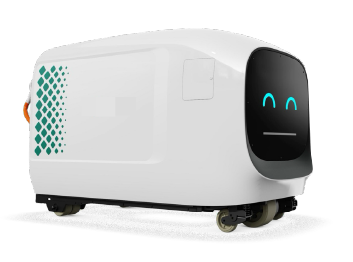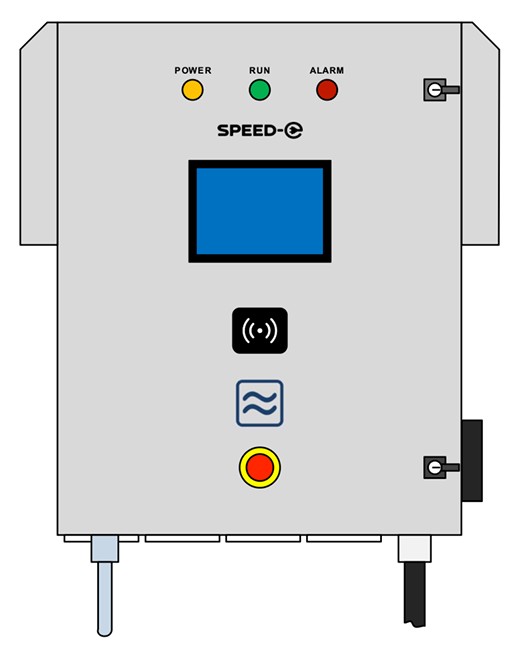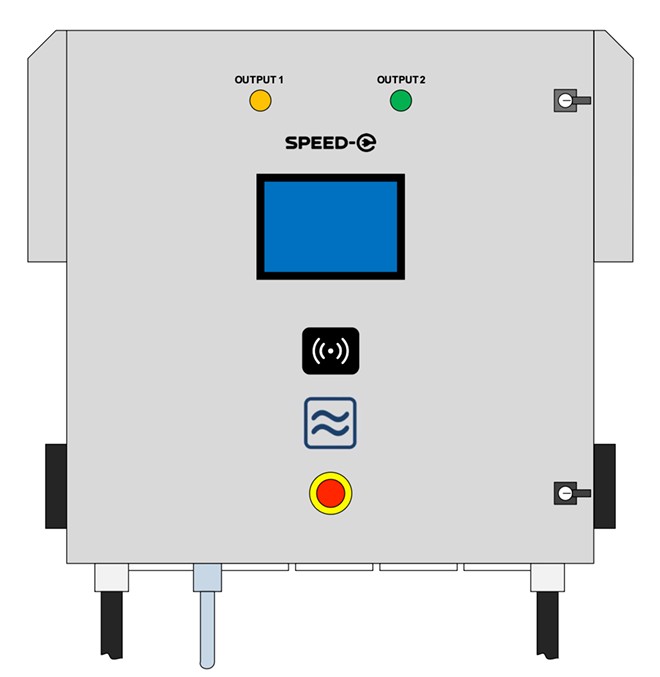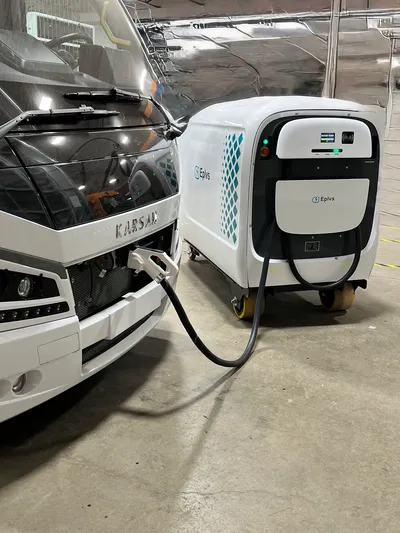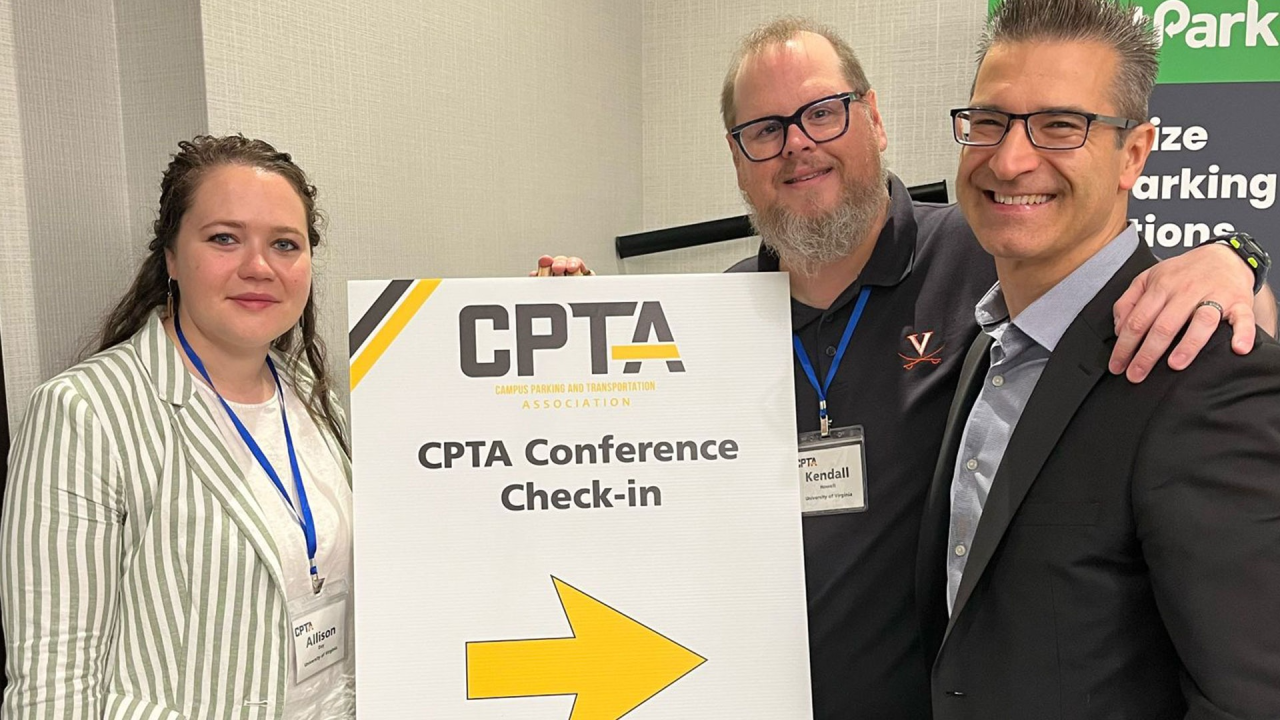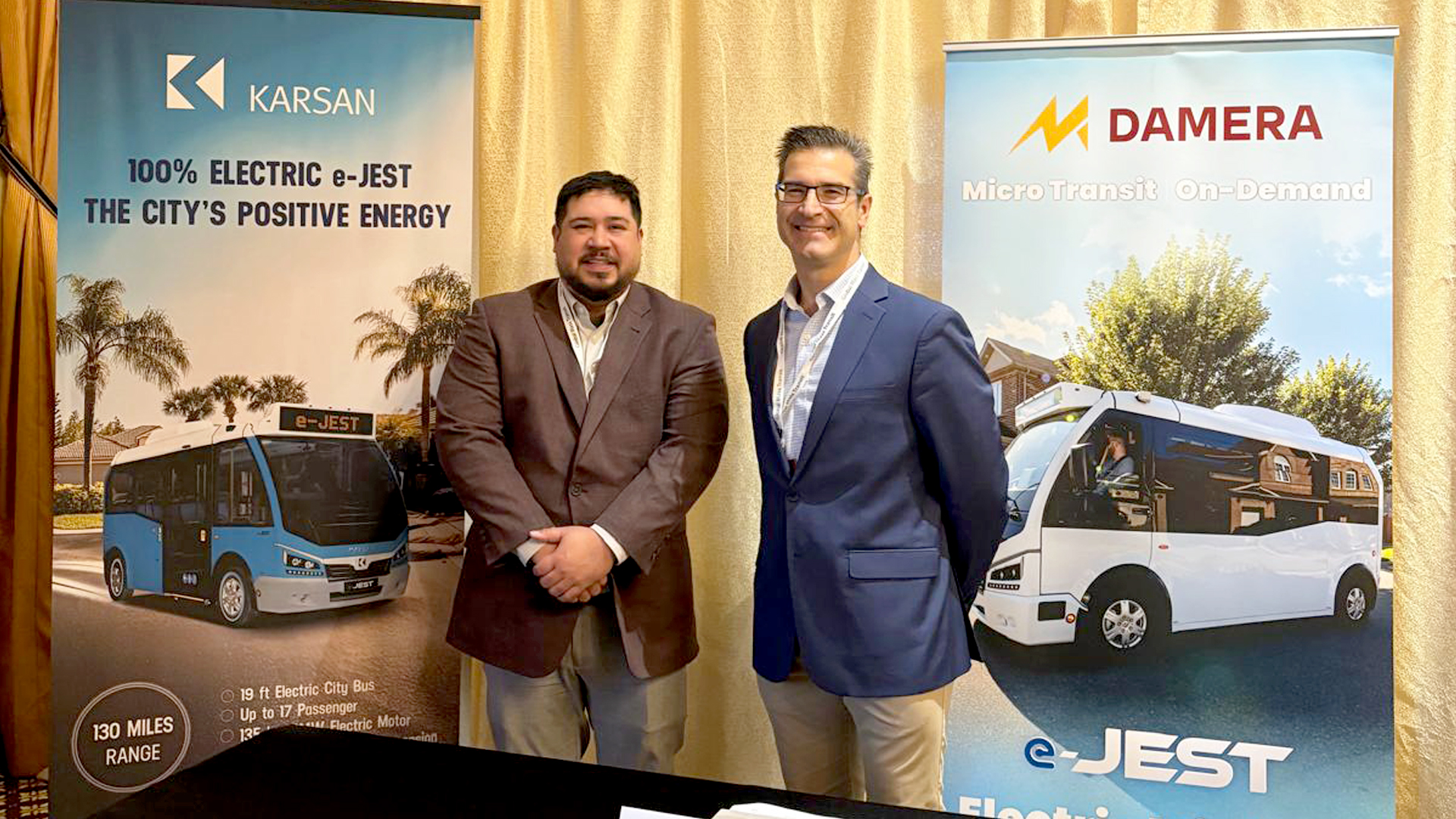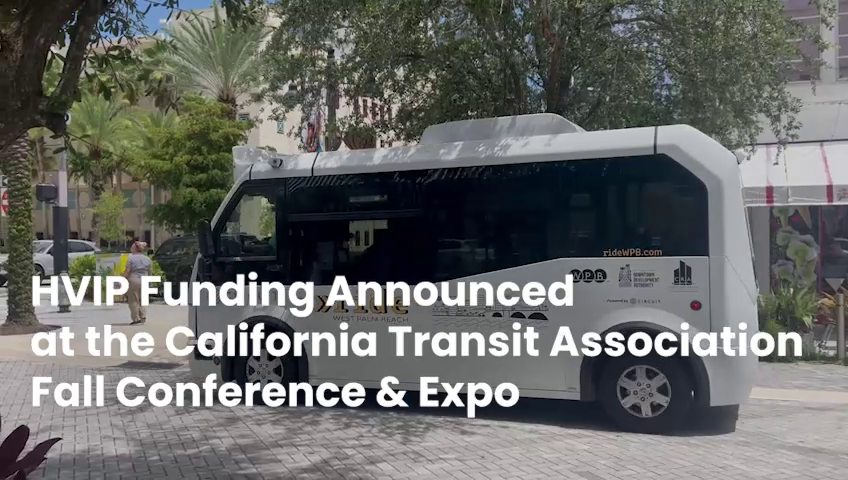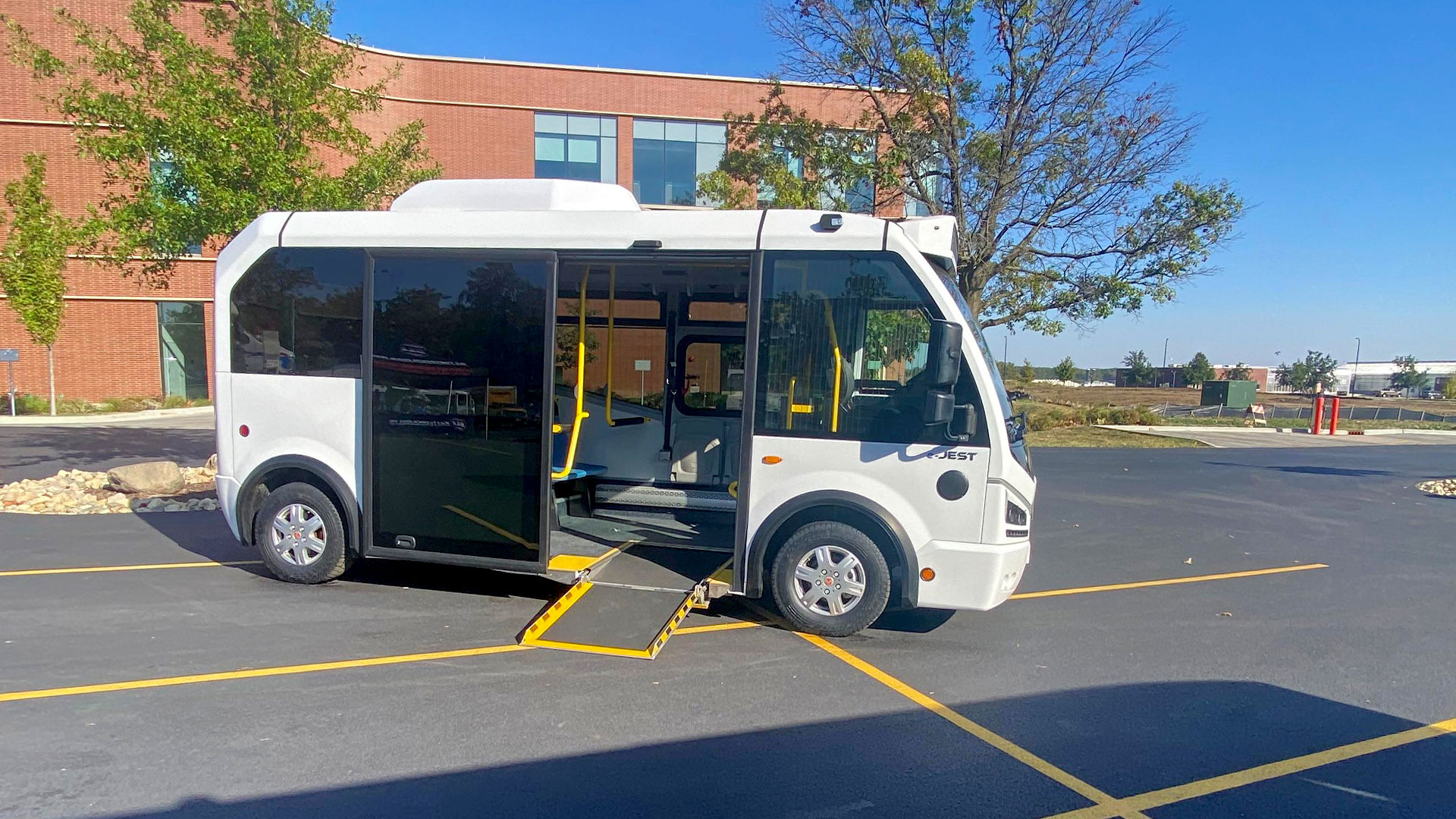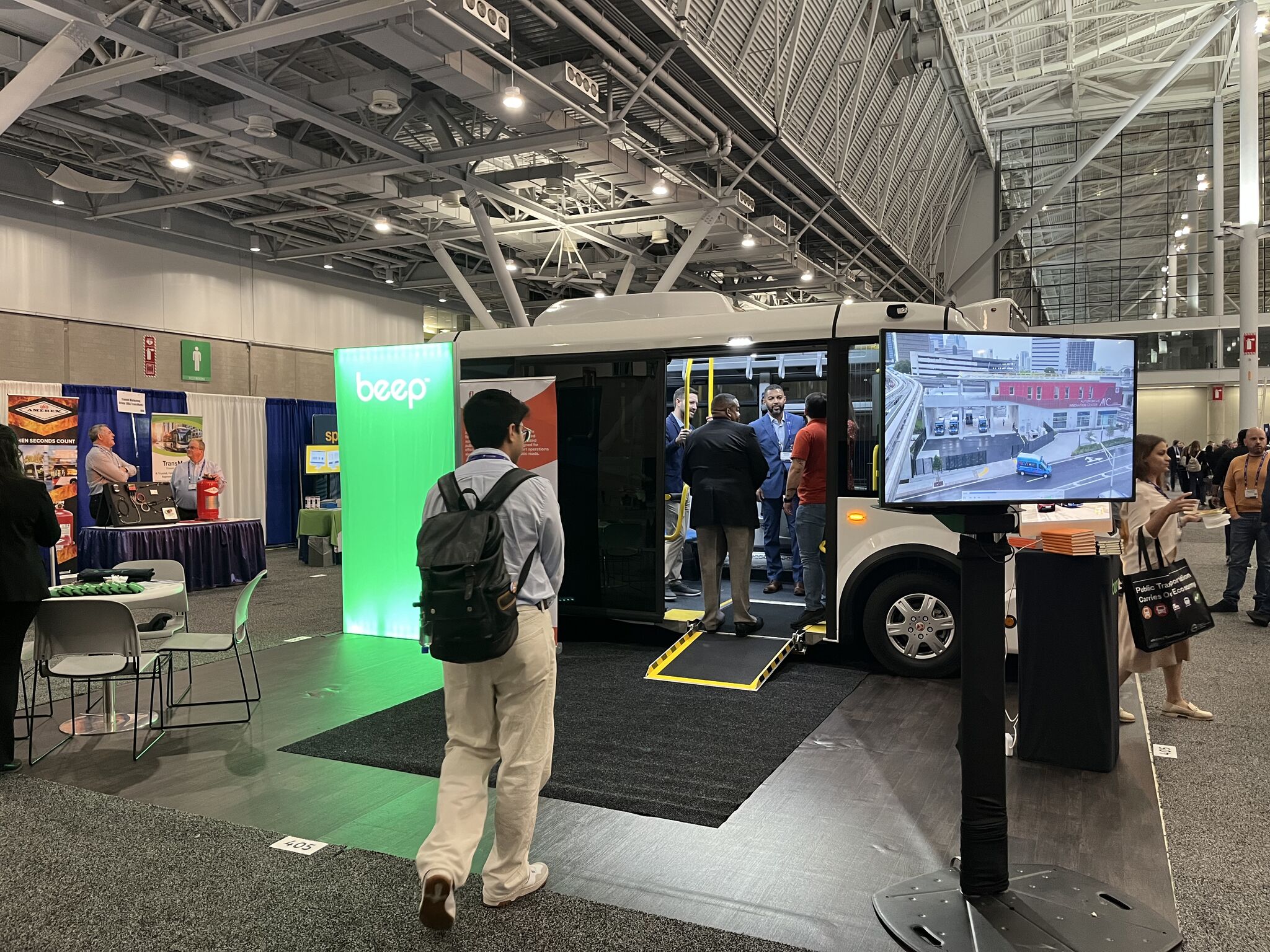The forces shaping the transit industry today — financial pressures, rider expectations, and technology shifts — aren’t temporary trends. They are permanent realities. Cities and agencies that move early toward smarter, cleaner, more flexible vehicles will be better positioned to control costs, boost ridership, meet community needs, and build sustainable transit systems for the future.
At the Redefining Mobility Summit in San Ramon, CA, Damera Corporation proudly showcased the Karsan eJEST — giving attendees a firsthand experience of this next-generation microtransit vehilce.
While the eJEST was presented as a static display, visitors were able to experience its modern, accessible design up close. Attendees could step aboard, explore the spacious low-floor interior, view the integrated accessibility features like the wheelchair ramp, and see the clean, compact engineering that makes it ideal for suburban, shuttle, and on-demand transit services.
Having the vehicle on-site gave decision-makers a valuable opportunity to:
✅ Understand the real-world accessibility advantages of low-floor, ADA-compliant design;
✅ See the quality of materials, fit, and finish designed for daily use;
✅ Visualize how the eJEST could enhance local service routes with flexibility, comfort, and zero-emission technology.
The Impact and Potential of Minibuses like the Karsan eJEST
✅ Boosting Ridership and Reducing Costs
Deployments of right-sized, electric minibuses have shown up to a 40% increase in ridership and a 29% reduction in cost per ride, while expanding service coverage — demonstrating a more sustainable model for suburban and lower-density areas.
✅ Driving Efficiency and Better Suburban Connections
Flexible, on-demand microtransit powered by vehicles like the eJEST has proven to improve route efficiency and strengthen connections in suburban environments where traditional fixed-route buses often underperform.
✅ Enabling Critical Door-to-Door Service
Right-sized, accessible minibuses support essential door-to-door mobility in suburbs, increasing convenience for residents and proving successful in delivering more inclusive transit options.
✅ Supporting Cleaner, Greener Communities
By reducing emissions and promoting flexible, zero-emission transportation, minibuses like the eJEST help lower carbon footprints and support the growth of sustainable suburban communities.
Why the Time is Right for the Karsan eJEST:
Transit agencies today face a perfect opportunity to transform how mobility is delivered. Factors like rising fuel prices, higher maintenance costs, and evolving passenger expectations are pushing cities to rethink traditional transit models. Smart, agile bus Karsan eJEST is perfect to meet these new demands.
Here’s why the shift is happening — and how the eJEST offers an immediate path forward:
Rising Operational Costs Demand Smarter Solutions
Fuel prices continue to be volatile, and the cost of maintaining aging diesel fleets is escalating year over year. According to industry data, the average operating cost per full-size bus in the U.S. ranges from $2.20 to $3.30 USD per kilometer — a heavy financial burden for agencies already managing tight budgets.
Meanwhile, compact electric minibuses like the Karsan eJEST operate at nearly half the cost per kilometer, thanks to:
- Lower energy costs (electricity vs. diesel)
- Fewer moving parts and reduced maintenance
- Longer intervals between service needs
✅ What this means:
The eJEST provides a sustainable way to expand service without expanding operating budgets — a win for both financial and environmental sustainability.
Passenger Expectations Are Higher Than Ever
Today’s riders expect more from public transit. Modern passengers demand:
- Convenience — shorter wait times, easier boarding
- Comfort — smooth rides, amenities like USB ports and climate control
- Reliability — predictable service and minimal delays
- Connectivity — real-time information, mobile apps, easy trip planning
- Flexibility — services that better fit changing work and lifestyle patterns
The Karsan eJEST is engineered to deliver on these expectations:
- Ultra-quiet, comfortable ride with 4-wheel independent suspension
- ADA-compliant low-floor access for all riders
- Modern interior features (USB chargers, LED lighting, ergonomic seating)
- Suited for microtransit and on-demand models that match how people live today
✅ What this means:
Transit agencies adopting the eJEST aren’t just replacing buses — they are upgrading the passenger experience, helping retain and grow ridership.
Technology Disruption Creates New Transit Opportunities
Advances in:
- Electric vehicle platforms
- Battery storage and charging efficiency
- Smart routing and scheduling software
- Telematics and real-time fleet monitoring
are reshaping public transit faster than ever before.
The eJEST fits perfectly into this new ecosystem:
- Supports simple depot or on-route charging
- Easily integrates with dynamic dispatch platforms like Argo Smart Routing™
- Offers real-time data monitoring for predictive maintenance and performance tracking
- Provides low-emission solutions aligned with city and federal climate goals
✅ What this means:
Agencies can future-proof their fleets with vehicles that adapt easily to new technology, sustainability requirements, and service models.
🚍 Don’t wait for tomorrow to solve today’s mobility challenges.Let’s build smarter, more responsive transit systems together - contact Damera





.svg.avif)

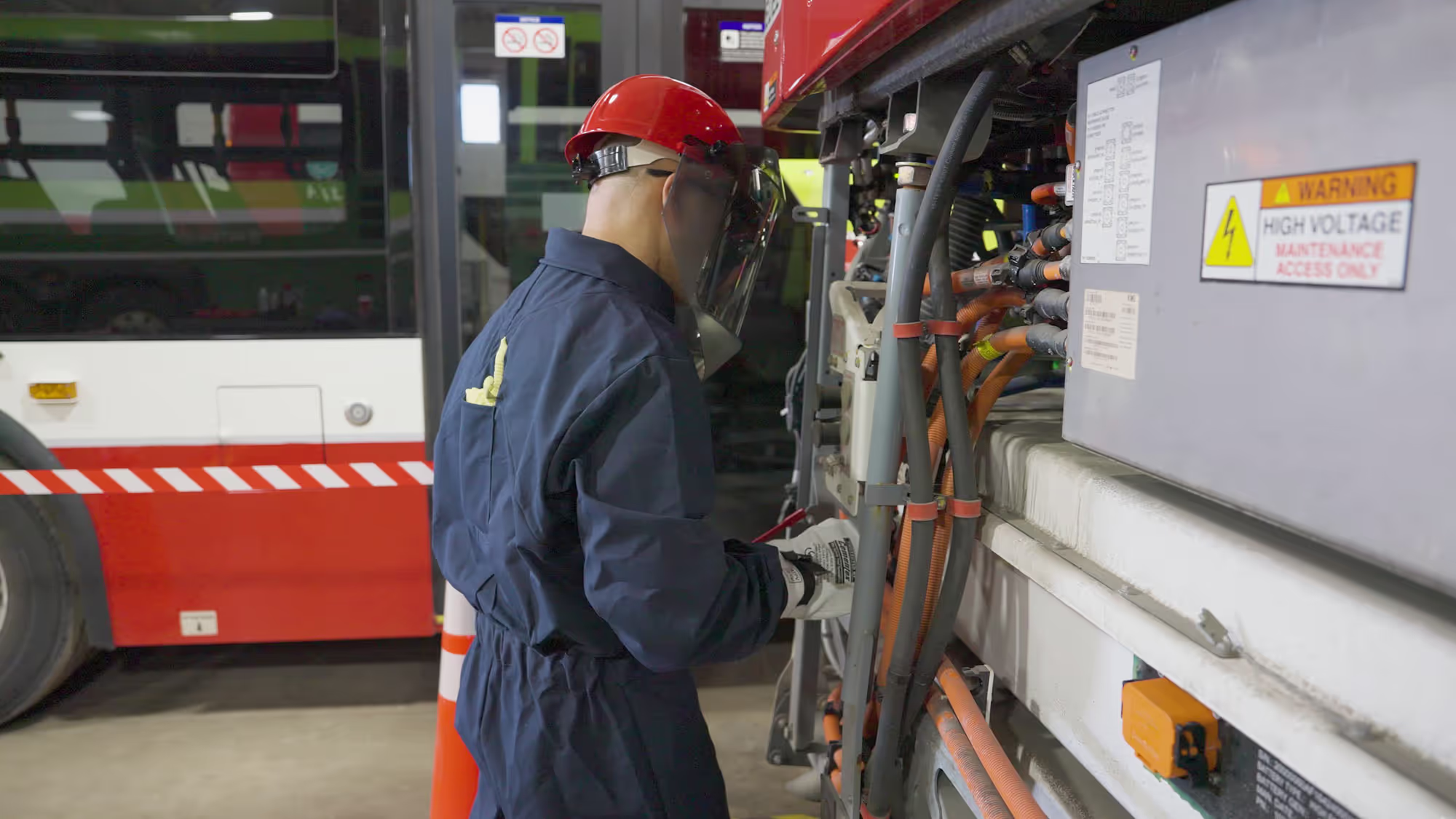


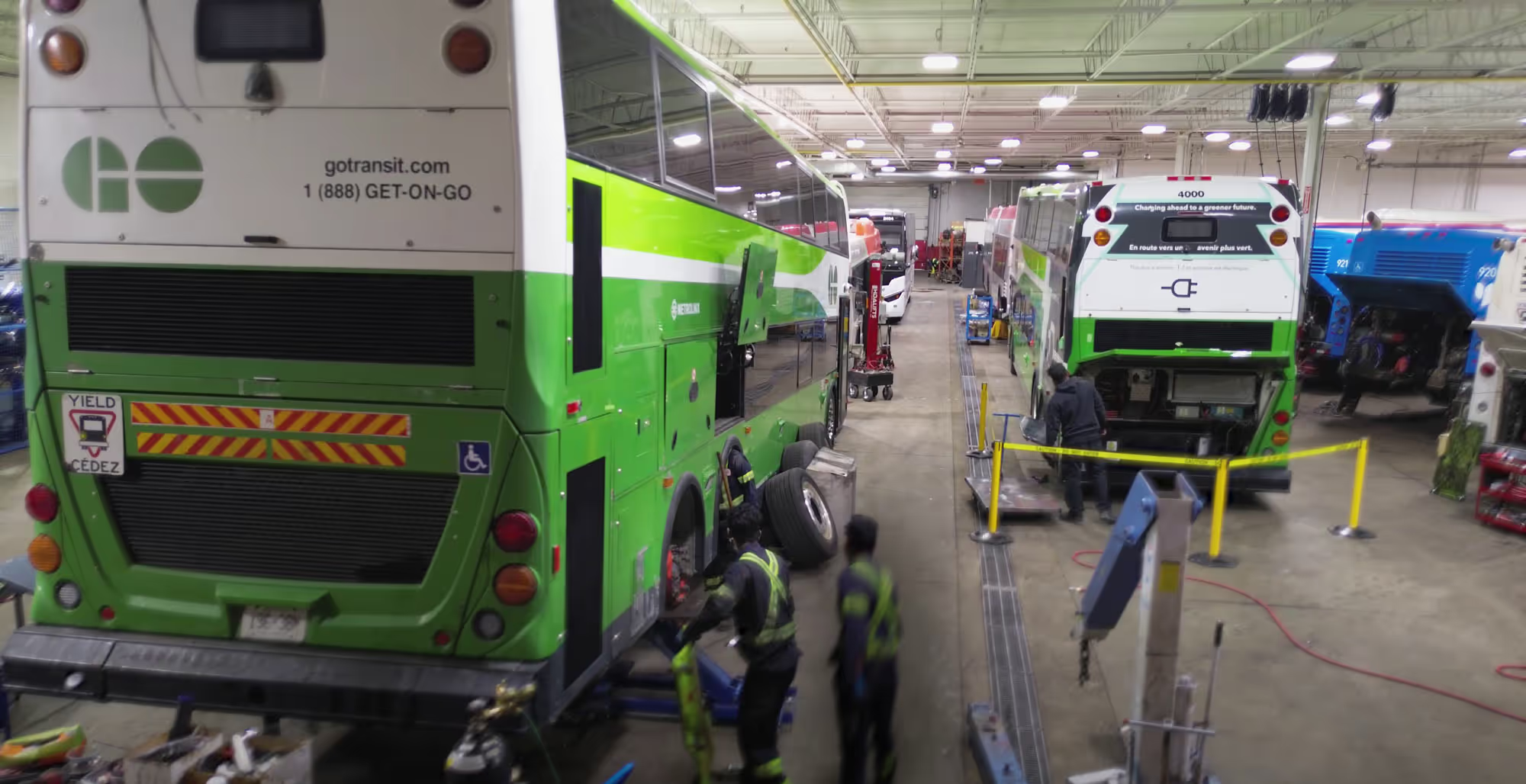




.svg)
 EV BusesKarsan eJEST
EV BusesKarsan eJEST EV BusesKarsan eJEST Autonomous
EV BusesKarsan eJEST Autonomous EV AND DIESEL COACHESTEMSA
EV AND DIESEL COACHESTEMSA accessible transit vehiclesMICROTRANSIT SOLUTIONS
accessible transit vehiclesMICROTRANSIT SOLUTIONS















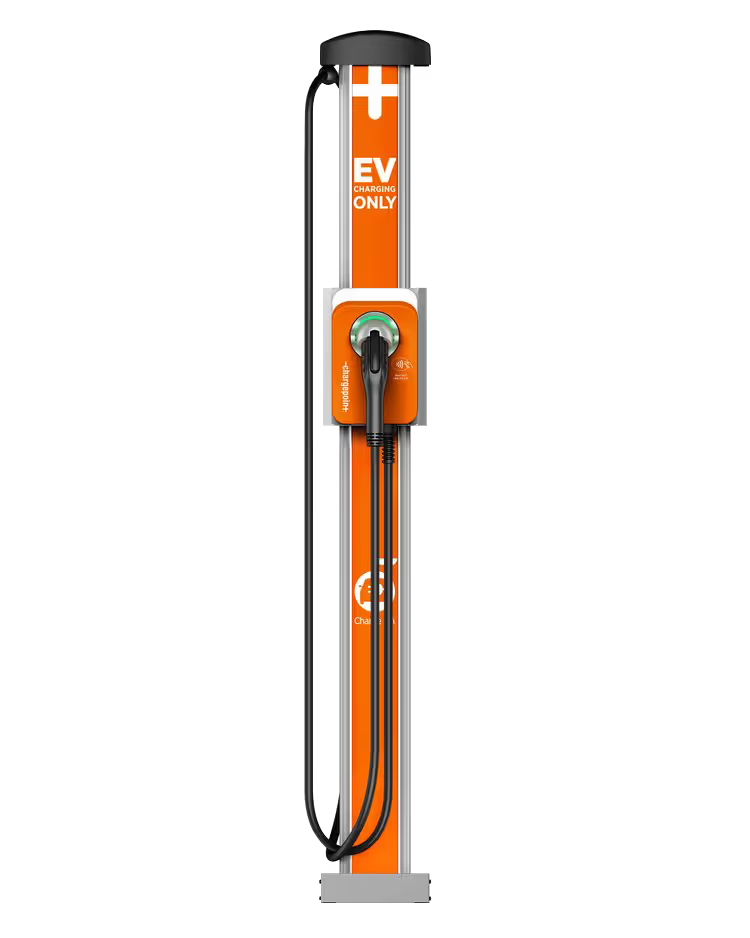





-p-500-p-500.avif)



